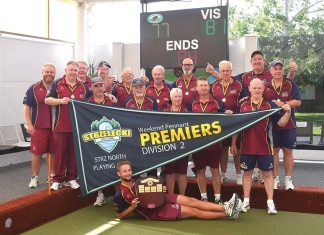Gippsland could be stranded without local Labor parliamentary representation for the first time in decades, if current moves to bypass rank-and-file upper house preselection are successful.
Internal debate about candidate preselection processes for the November 2014 state election came to a head on Thursday, with the Victorian Administrative Committee favouring backroom deals over a membership ballot.
The committee’s decision has been handed to the Labor National Executive, which if approved, could see two suburban nominees, backed by faction powerbrokers, automatically preselected for the Eastern Victoria Region, currently represented by Matt Viney and Johan Scheffer.
Mr Viney and Mr Scheffer have recently announced their retirements for the end of the current parliamentary term, and with offices in Warragul and Pakenham respectively, are the last sitting Labor ‘Gippslanders’ in either houses of state and federal parliaments.
Gippsland Labor members Jane Rowe, Tony Flynn, Jadon Mintern and Tim Delaney are believed to be among nominees hoping to stand for the two eastern region seats to be vacated at the next election.
Labelling the administrative committee’s decision an “injustice” to democracy, nominee Ms Rowe has embarked on a campaign urging the National Executive to ignore the committee’s request.
Widespread commentary has labelled the move as contradicting the spirit of the recent Labor federal leadership selection process, which established Bill Shorten as opposition leader through the inclusion of a rank-and-file ballot process.
“We are no longer willing to accept this undemocratic approach; that’s why people went through the whole preselection reform process, but now they are effectively hoodwinking rank and file members and smacking nominees in the face,” Ms Rowe said.
In the event of another wall-to-wall Labor defeat in Gippsland’s lower house electorates in 2014, including in Morwell and Narracan, the upper house preselection move is feared to further entrench the conservative political stranglehold on the region.
Declaring his “obvious” interests as a nominee, Tony Flynn said he strongly disagreed with the committee’s decision, adding nominees felt like they were being “done over” by their own party.
“It’s highly disappointing local Gippslanders aren’t going to have a say on preselection matters for their own region,” Mr Flynn said.
One well-placed source slammed the decision, and said poor upper house representation in Gippsland would have a flow-on impact on the future success of lower house candidates in Gippsland
“How the hell do you rebuild the party in Gippsland without any offices on the ground; this is a very short term view by the committee, and will give us no chance of gaining representation in the face of wall-to-wall Liberal and National party presence,” the source said.
Monash University senior political and social inquiry lecturer Nick Economou said the committee’s decision was further sign of an “endemic” problem for Labor support in Gippsland.
“The Victorian Labor approach seems to be ‘here are all these positions and we will allocate these in line with factional patronage’, however that is going to do absolutely nothing for the problems Labor faces in the Latrobe Valley and Gippsland,” Mr Economou said.
“I cannot believe that things are so bad in Labor politics that on a broader scale, places like the Valley with its enclaves of working class socioeconomics enclaves cannot amongst themselves find candidates the have faith in to run for contest.”











